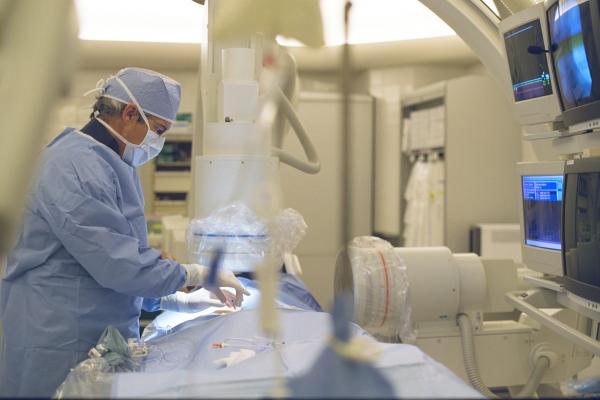
Photo courtesy of Seattle Children's Hospital
Routinely adding mitral valve repair to coronary artery bypass graft surgery for heart attack patients may not be warranted in patients with moderate mitral valve damage, according to an NIH-funded study. Patients treated with both procedures versus the bypass graft alone showed no differences at one year in recovery from structural damage to the heart's left ventricle, nor in secondary measures such as heart failure, stroke, functional status or quality of life.
The results of the Surgical Interventions for moderate ischemic mitral regurgitation (IMR) study, supported by NIH’s National Heart, Lung and Blood Institute (NHLBI), were presented at the American Heart Association Scientific Sessions in Chicago and published in the New England Journal of Medicine.
Doctors typically treat heart attack patients with IMR by performing coronary artery bypass graft surgery, sometimes adding a procedure to repair the leaky mitral valve. The study is the first large-scale randomized clinical trial to assess whether adding the repair procedure leads to a measurable benefit for patients.
The study included 301 patients with moderate IMR who had been treated with one or both surgical procedures. Researchers assessed each patient's condition at six and 12 months by measuring the amount of blood remaining in the left ventricle after a heart contraction. Both patient groups showed similar rates of improvement at the 12-month assessment.
This research was conducted as part of NHLBI’s Cardiothoracic Surgical Trials Network and was co-funded by the National Institute for Neurological Diseases and Stroke and the Canadian Institutes for Health Research.
For more information: www.nhlbi.nih.gov


 January 05, 2026
January 05, 2026 









